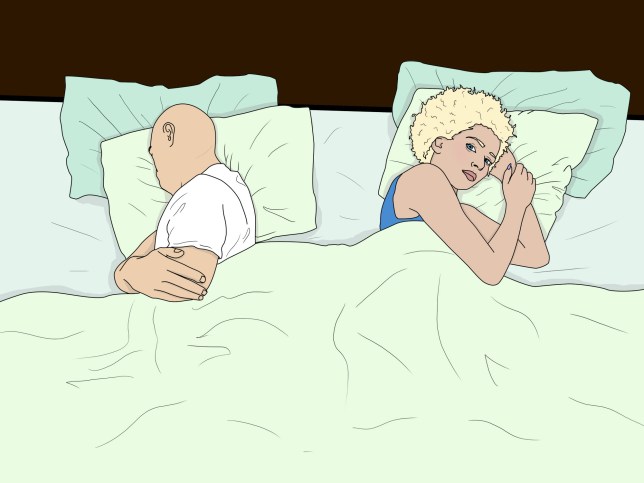-
More than one in ten (12%) Brits haven’t had a sexual experience – anything from a kiss to penetrative sex – for over three years
-
LELO’s 2020 Sex Census report reveals the top 10 reasons why Brit’s aren’t having sex
-
Top 10 reasons for Brits having less sex include; tiredness (35.7%), poor mental health (33.6%), negative body image (25%), no or low libido (19.4%), ageing (18.3%), work pressures (16.1%), menopuase (14.5%), medication (12.6%), kids (11%) and performance anxiety (9.4%)
Over one in ten (12%)* Brits haven’t had an intimate sexual experience, including anything from a kiss to sex, for more than three years, according to new research by LELO UK.
The sexual wellness brand has released a full Sex Census report based on research and insights about the sexual and intimate lives of Britons in 2020 and revealed the top 10 reasons why the UK is experiencing a ‘sex slump’.
With 2020 marking the start of a global pandemic it’s no great suprise that among the top reasons contributing to the UK’s sex slump were; tiredness (37.5%) and mental health (33.6%) with negative body image (25%) coming in close third*.
Here’s why Brit’s aren’t getting their recommended dose of sex and intimacy, with commentary from Kate Moyle, Sex and Relationship expert at LELO UK:
1. Tiredness – 35.7% of those surveyed stated that tiredness negatively impacted their sex lives. Not really a surprise when we see that modern life is so fast paced, and with the dissolving of the boundaries between work and home, it’s much harder for people to switch off to turn on.
2. Mental Health – 33.6% of respondents replied that poor mental health was impacting them sexually, with stress, depression and anxiety cited as having a negative impact.
3. Negative Body Image – 25% mentioned body image and lack of body confidence as impacting their sex lives, and this was highest (over 30%) in the under 35’s, which we can guess is partly due to the increased role of social media in their lives.
4. Low libido – 19.4% Knowing what we now do about desire from modern sexuality research, it’s likely that much of this is to do with how we understand ourselves sexually, and that historical models of how we learn and talk about sex are creating a gap between our expectations and reality.
5. Aging – 18.3% describe aging as impacting their sex lives. Ageing has a psychological, physical and physiological impact. As men age we see a decrease in testosterone which can have a negative impact on their sex life. For women, the average age of menopause is 45, which comes with a range of symptoms that can impact how we feel about ourselves, our body’s physical responses and arousal process.
6. Work pressures – 16.1% of those surveyed found that work was leaking into their home and personal lives, and with our technology being the constant third wheel in our relationship it’s not really a surprise. The pandemic has also dissolved the boundaries between work and home, which affects our ability to switch off or not feel distracted.
7. Menopause – 14.5% of women surveyed indicated that menopause was impacting their sex life in a negative way. Gynaecologist with intimate wellbeing brand INTIMINA Dr Shree Datta confirms menopausal symptoms really vary from woman to woman, as does how severe they are and how long they last. Common symptoms include hot flushes, night sweats, vaginal dryness, mood changes (such as feeling anxious or depressed), fatigue, difficulty sleeping, pain during sex, headaches, a drop in libido and joint or muscle pain. There may also notice a change in periods – for example, their frequency or regularity – in the time leading up to the menopause.
8. Medication – 12.6% Many medications such as SSRI’s, a widely used antidepressant medication (we can also expect some overlap with 33.6% of respondents indicating poor mental health impacts them sexually) have a common listed side effect of impacting sexual functioning and loss of libido.
9. Performance anxiety 9.4% Performance anxiety is one of the most common reasons that people present for psychosexual therapy. Much of it is to do with our culture and messaging around sex, which sets up unrealistic and unhelpful expectations.
10. Kids – 11% of those surveyed said that their kids impacted their sex lives in a negative way. Parents have less time for themselves as individuals and couples, especially during the Covid-19 lockdown when many children were forced to stay at home. We can guess that interruptions aside (kids walking in on parents having sex) that the increased demand on being a parent reduces opportunities for couples to connect and make time for themselves.
Kate Moyle, Sex and Relationship expert at LELO UK, comments: “We have seen people reporting a real shift in their sex lives during lockdown and the pandemic, which for many couples exaccerbates the struggles that they are already having. For those not living together there is the physical barrier of distance between them and their partners; meaning that their sex life may have to move from physical to virtual. And for those in lockdown together, many are reporting a lack of desire. This doesn’t seem surprising when we acknowledge that there is little difference or distance to speak of, and the bedroom which previously may have been a boundaried space for sleep and sex has taken on a new meaning with us parenting / working / living all in the same space. For many of us being at our computers all day, home-schooling children and very few outlets apart from Netflix ( more screen time ) offers us little opportunity to trigger desire or sexual moments; and there is little new input to help us break up routines, which in our sex lives it’s very easy to fall into and don’t motivate us to have more sex.”
For those who are lucky enough to be living with your partner, Kate Moyle shares five industry secrets and advice for getting your sex life back on track:
1. Communication is the best tool that you have to navigate any type of change in your sex life; and although we can feel close to and in sync with our partners, they can never know what’s going through our heads unless we tell them explicitly.
2. A good lubricant is a helping hand for any sex life, LELO’s Personal Moisturiser is a dual-purpose, water-based lubricant that’s perfect to use with your partner or by yourself. Vaginal atrophy can mean a reduction in elasticity and increased vaginal dryness, so lubricant can help with that creating a glide sensation, which will reduce friction and discomfort. It’s also a great addition for mutual or solo masturbation and for clitoral stimulation.
3. Masturbation and orgasm have been recommended by some professionals as a way of increasing blood flow to the genitals, and keeping the tissue oxygenated. Sex toys can also be incorporated into this and vibrators have been shown to increase vascularity to the genitals. A toy like the new SILA from LELO offers gentle sonic waves which can offer clitoral stimulation when on your own, or with a partner.
4. There are erogenous zones all over the body, and we don’t have to only pay attention to the genitals to experience sexual pleasure. Use it as an opportunity for you and your partner to explore each other’s bodies head to toe, playing with touch and massage and telling each other what you like and don’t like.
5. Apps like Ferly also have audio guided exercises such as their ‘Body Scan’ which can help you to connect with your body and help you to understand your sexual self more. They also have sensual stories, which can help to ignite your imagination and create a sense of desire.
If you’re thinking about spicing solo or partnered love life up, head to lelo.com to check out the latest toys.

| [donate]
| Help keep news FREE for our readersSupporting your local community newspaper/online news outlet is crucial now more than ever. If you believe in independent journalism,then consider making a valuable contribution by making a one-time or monthly donation. We operate in rural areas where providing unbiased news can be challenging. |


















